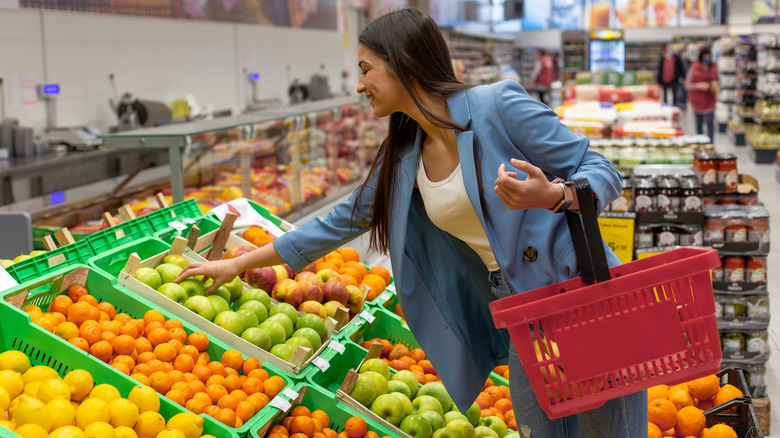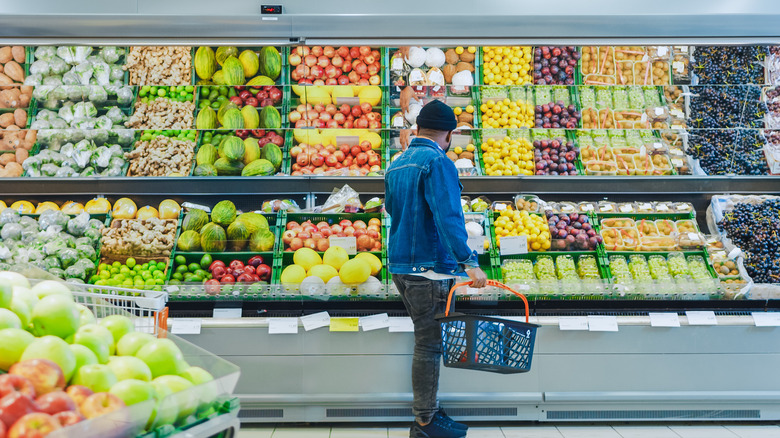The Eco-Friendly Reason You Should Never Buy Out Of Season Produce
Seeing a package of ruby red strawberries on a grocery store shelf can be an amazing sight for winter-weary eyes, but before you add a container to your shopping cart, you may want to think twice about the environmental impact of buying out-of-season fresh produce. (If you're looking for the freshest items, dig deep — and smell, touch, and look before buying.)
For those trying to make eco-friendly purchases, it's important to keep in mind what fruits and vegetables are in-season. Otherwise, those fresh items may be traveling a long way to get from the field to your kitchen. Not only that but by buying and cooking with produce that has been grown locally, your meal will be more nutritious and the taste will be superior to something that was grown thousands of miles away.
You're always better off using locally grown and sourced ingredients for your cooking — and by cooking with local and in-season ingredients, the environment too will benefit.
Reducing the carbon footprint
When an ingredient travels long distances to get to your dinner table, it means it has a larger carbon footprint due to the gas used for transportation, whether by airplane, semi, or by other modes.
And how it gets to you makes a difference. In the U.S., more than 30% of vegetables and 50% of fruit come from foreign places. Of the three ways that produce is often brought to the U.S., airplanes are the worst for the environment because they use about 24% times more energy than trains.
But that's not the only way that carbon footprints are increased by purchasing out-of-season produce. Even if they are grown locally, heated greenhouses increase the amount of energy needed to grow the plants. The rule of thumb is that locally grown produce comes from within 100 miles of your residence, but on average, a piece of produce will be transported about 1,500 miles in the U.S. before it reaches its destination.
So, while your eyes and stomach may be drawn to asparagus on a cool September day, instead reach for the in-season butternut squash if you're trying to not only benefit yourself nutritiously but have a lower impact on the environment.

